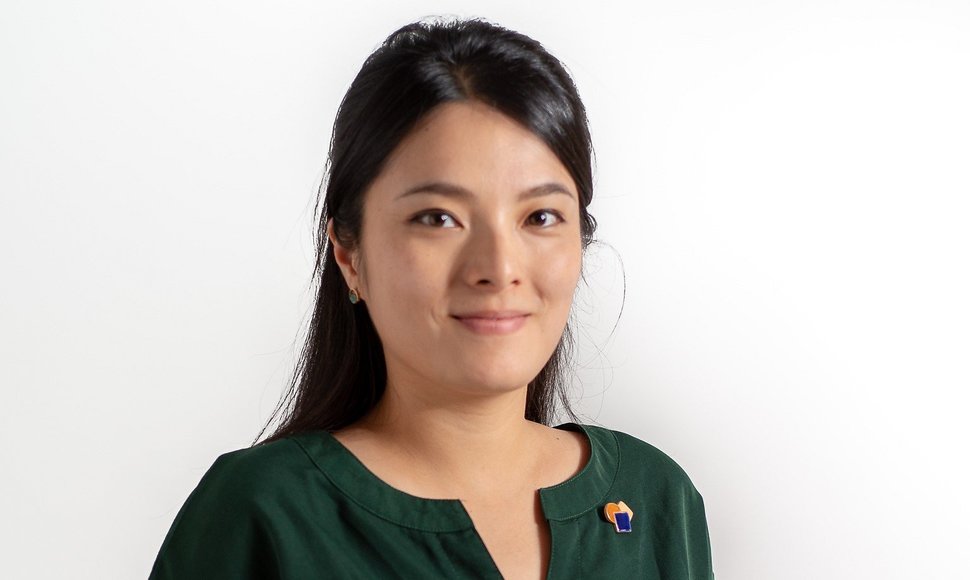All education institutions claim to employ different teaching approaches and a curriculum that influence young personalities to be curious and capable lifelong learners. However, what I really would like to touch on, is the importance of an infused international-mindedness during a child's upbringing through multi-cultural settings. So, you're a family in Lithuania, not really having plans to move overseas, why should you consider sending your child to an international school locally? Here are a couple of reasons why we think sending your child to an international school might just be one of the best ideas there is!
Preparing for the 21st-Century World without Boundaries
International schools tend to adhere to international curriculum such as the Cambridge Assessment International Education or the International Baccalaureate (IB), which incorporates the appreciation for other world cultures into the learning process and are recognized worldwide. As a result, the children experience a variety of cultures and people firsthand, and benefit from these cultural experiences through learning to work with people from diverse backgrounds including international classmates and teachers. This unique opportunity allows children to gain insight and confidence in dealing with people who are different from themselves- as international school students often report that studying with non-local peers helped them to better appreciate the world around them- this is because a truly international school brings the world into the classrooms, every day.
Emotional Intelligence
As international schools celebrate differences in cultures and personalities, this appreciation for differences fosters an emotional maturity in children. Your child will likely gain lifelong friendships with other foreign children, and in the process of assisting these international students to work through daily challenges such as language barriers and social integration, your child becomes more empathetic and tolerant towards others. Children who learn to overcome the challenges presented in international schools also gain confidence, independence, and maturity in the process.
A Balanced School Life
International schools provide rich extracurricular programs within their curriculum that help children find and develop new personalities and identities. Students learn to be creative and develop unique imagination through a variety of after-school activities such as Public Speaking Team, Journalism Club, Model United Nations, Robotics, or Social Entrepreneur Club. When children excel in new deeds, they not only gain confidence in newfound talents and personal expressions, but are also less likely to exhibit behavior problems. Extracurricular activities are also a great way for children to learn how to focus and cooperate with other children while staying focused on developing problem-solving and critical thinking skills as they endure new challenges working with others.
Broader Future Possibilities
In our rapidly changing world today, the wisest approach to life is to keep our options open. The best present and preparation that we can give to our children is the opportunity to consider further studies and employment opportunities worldwide. For example, global standards of English Language Certifications can be decisive in ensuring that a child is selected for projects, internships, intercultural exchanges etc, as a prestigious and incontrovertible recognition. Although learning English is a wonderful experience at any age, starting immediately can be decisive. For a young person who looks to the academic world and subsequently, to the world of work, mastering English in an international environment already represents and extraordinary added value. Furthermore, as we enter Industry 4.0, the businesses world today operates on a global scale, where employers look for individuals who are not only professionals in their fields, but those who are able to effectively use soft skills such as collaborating with people from various cultures to accomplish their tasks- with multilingualism as a very desired trait. International school alumni can feel confident when looking for career opportunities because of their exposure to various world cultures and languages from the early stages.
In short, academic and intellectual development is naturally fundamental to successful schooling, but how can we prepare children to thrive in our increasingly globalized world? We propose: liberal thinking and a desire to contribute to society will increasingly become the marker of success. Today's students need a curriculum that meets the demands of the 21st century and encourages students to be open, tolerant and collaborative individuals. Erudito Licejus is Lithuania's pioneer in incorporating international essence to the Lithuanian National Curriculum, strong in bilingual education in both producing solid academic outcomes, while fostering international mindedness and all-rounded personalities. Find out how we can help your children think beyond borders and prepare as future world leaders by getting in touch!
About the author:
Ms. Julie Chu is an international education specialist, who grew up between Taiwan, Thailand, and the UK. After gaining her Master's degrees in Educational Counselling from the University of Bristol and in Educational Research from Oxford University in the UK, she has worked in the field of education for the past five years. She is currently the International Programs Coordinator at Erudito Licejus, overlooking the quality of international curriculum delivered at the school and concerns over the well-being of the international community in Lithuania.












